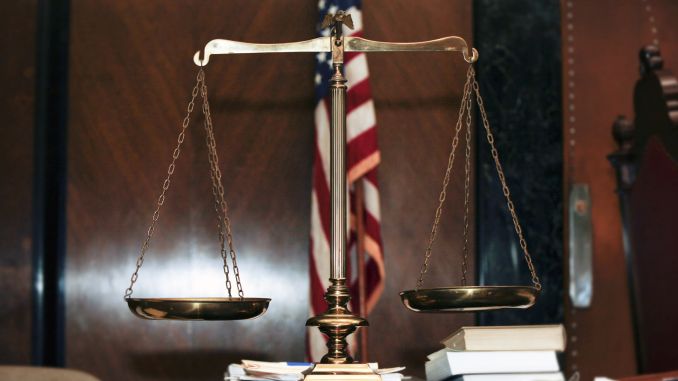
The Rule of Law isn’t just a synonym for “law and order”. It has a meaning: that every person in the land, from the most humble to the leaders, are subject to the same laws, the same requirements, and the same punishments. It it is a key concept for a stable society.
Traditional American conservatives have believed in the rule of law. Traditional American liberals have, as well. Despite what would seem to be a point of commonality, they firmly disagree with each other over it. It comes down, as many things do, to interpretation.
Conservatives have generally sided with the letter of the law. If the law says something, that is what must be followed. This is a simple, direct, and accurate interpretation… A=A, the identity postulate, one of the foundational concepts of math and all science. If a law is deemed to be unjust or incomplete, change the law.
This policy is viewed as rejecting nuance and failing to account for unexpected and extenuating circumstances. That is incorrect. If properly written, laws do allow for such… when the society, via the legislature and the administrative, deem they should be considered.
The liberal position tends toward broader interpretation. The underlying notion is fairness; the law should apply to everyone not just by word but by intent. If someone poor cannot receive the same level of competent counsel as a person of wealth, the law can scarcely be said to be applied evenly to both groups.
This concept is similar to applying a handicap in golf; in casual play it is typically used to provide equity among players and ensure a fair game (the liberal perspective). In professional play it is discounted and the hard numbers are used (the conservative perspective.) The widespread use of both systems throughout the world should suggest that both systems have a measure of viability to them. While I readily admit to favoring the first, I would be remiss were I to pretend the second does not have merit simply to promote my preferred view.
What does not have merit is nationalism’s view on the Rule of Law. Because nationalism is rooted in tribal or team notions, in nationalist systems the Rule of Law is expected to be applied evenly across only those people who are deemed to be part of the group. Others may be subject to the standard law or they may not, subject to the whims of the nationalists.
It’s easy to find examples of this throughout history. Many mass slaughters have been conducted by nationalistic governments which distinguish members of their own population as undesirable, and those are usually the first examples which leap to mind. The inequity doesn’t need to be so destructive, however. Simply separating out a segment of the population to special rules and restrictions inevitably results in systemic repression… whether that’s of non-Muslims in Islamic countries, blacks in Jim Crow era America, or the treatment of outsiders through most of 20th century Japan.
We have had many examples of nationalism’s contempt for the rule of law this week, from people fuming because votes of fellow citizens were being counted to a President who arbitrarily claimed state victories because he rejected votes of those who disagreed with him. With a Biden win, nationalism is on the way out and an interpretation – even if it may not be my preferred one – is returning. It is up to us to recognize the differences and be able to explain it to others who may have been guided toward nationalism.
